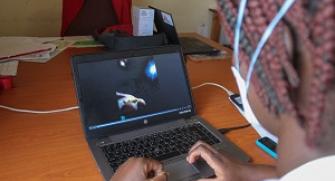Our training
Epicentre has a recognized reputation in providing field epidemiology training programs on ‘Populations in Precarious Situations’ (PSP) and ‘Response to Epidemics’ (RepEpis).
These trainings are held in Europe, but for several years now, Epicentre also organizes these trainings in cities close to the MSF field missions: PSP and RepEpis training are adapted to the local field trainees and circumstances.
These programs contribute to higher quality field work.
Epicentre also contributes to international public health, tropical medicine, and field epidemiology courses in universities as well as trainings held by its partner institutes such as the Institut Pasteur, the World Health Organization, UNICEF, EPIET, etc. Epicentre also provides EPIET and public health students the opportunity to do internships at Epicentre as part of their training.
"This training makes me open my mind, fully understand the importance of Epidemics in the projects to help the community in better and rational ways. Also, for the team to transmit and communicate them the real problem and the problems or complications that we can face in the future." Gino M., trainee during the RepEpi course that took place from March 15 to 19, 2021 entirely online.
Training topics
- Basic tools and methods of epidemiology;
- Nutritional, vaccines, and mortality surveys;
- Rapid assessment in emergency situations and definition of health priorities;
- Investigation and response to epidemics; and
- Epidemiological surveillance.
Epicentre courses
- Populations in Precarious Situations (PSP) – 12 days
This course aims to prepare MSF personnel to respond to emergency humanitarian situations. - Response to Epidemics – 5 days
This course provides information (current data and future outlooks) and tools to enable participants to be alert and ready to respond to diseases with epidemic potential. - Ad hoc briefing days in response of emergencies, such as measles or cholera outbreaks.
For more information, contact
To find out more about the content of the courses
Course outline 'Populations in Precarious Situations'
Course outline 'Response to Epidemics'
Mission
Find out more
Organisation and Funding
Find out more
Research Center Niger
Find out more
Research Center Uganda
Find out more







